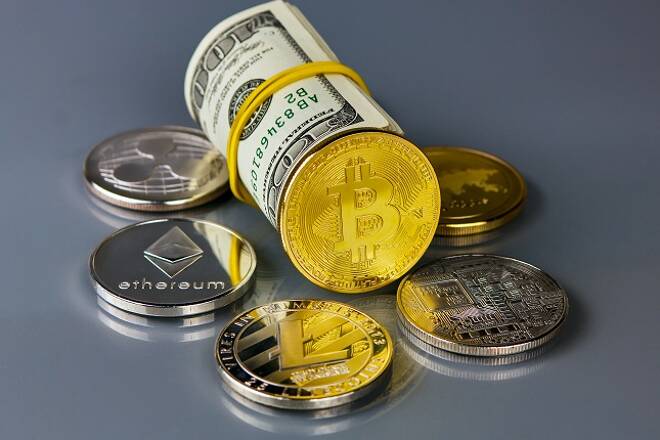Advertisement
Advertisement
Luxury Car Companies in Singapore and the U.S Start Taking Crypto
By:
Crypto payments for luxury goods were on the rise in 2021. Crypto payment processing firms are partnering with luxury goods brands to drive spending.
Key Insights:
- Luxury car companies in Maryland State and Singapore accept crypto payments.
- Crypto adoption gathers pace, with companies targeting crypto holders for product sales.
- Last month, Miami in the State of Florida started offering homebuyers Bitcoin (BTC) collateralized mortgages.
This year, the evolution and increased interest in web3 have driven demand for cryptos.
With U.S. inflation hitting a four-decade high in March, and Bitcoin (BTC) and other cryptos sitting below their all-time highs, service providers and luxury brands are targeting crypto holders.
It is not just the U.S. targeting wealthy crypto holders but also the crypto-friendly Republic of Singapore.
Luxury Car Companies in the U.S. and Singapore Start Accepting Crypto
Dealerships have partnered with payment processing companies to facilitate the crypto purchase of luxury goods.
On Wednesday, BitPay announced a partnership with Porsche Towson in Maryland, USA.
Via Twitter, BitPay said,
“Turn your #crypto into precious metal at Porsche Towson. Now accepting Crypto as payment for vehicle purchases. Learn more: Porschetownson.com/new-inventory.”
Turn your #crypto into precious metal at Porsche Towson. Now accepting Crypto as payment for vehicle purchases. Learn more: https://t.co/g5eD13Y7tS#Porsche #crypto #bitcoin #doge #shib pic.twitter.com/Yj3yO3iIyK
— BitPay (@BitPay) April 19, 2022
At the time of writing, the 2022 Porsche Cayenne was on offer for $95,880, equivalent to 2.32 BTC.
BitPay is a leader in blockchain payment technology, allowing users to accept and send Bitcoin & cryptocurrency payments.
BitPay’s announcement coincided with news of another crypto payment platform facilitating crypto car payments.
This week, EuroSports Global announced a new partnership with Fomo Pay to accept crypto car payments.
EuroSports Global stated,
“EuroSports Global Limited, a leading distributor of luxury automobiles and premium smart electric motorcycles innovator, is pleased to announce today that it is now accepting cryptocurrency payments with FOMO Pay, the first Major Payment Institution to introduce a cryptocurrency payment method to merchants in Singapore.”
The company went on to say,
“By adding cryptocurrency as one of the payment options, the Group aims to attract new potential customers who are looking for new avenues to spend their cryptocurrency investments and address the growing demand for flexible and easy-to-use cryptocurrency payments. The customers will be able to pay seamlessly using a wide range of cryptocurrency wallets, including but not limited to Bitcoin, Ethereum (ETH), Tether (USDT), and USD Coin (USDC).”
Accepting crypto payments will allow the Group to reduce transaction costs, facilitate cross-border transactions, and provide borderless payment protection.
At the time of writing, the new Alfa Romeo Stelvio Quadrifoglio was on sale for SGD418,000. That was equivalent to approximately 7.4 Bitcoin.
Demand for Luxury Goods Crypto Payment Options is Rising
In January, FX Empire reported on the upward trend in crypto payments for luxury goods.
According to the report, BitPay luxury goods transaction volumes increased 31% in 2021. Customers reportedly use cryptos to pay for a broad range of luxury goods, including boats, cars, jewelry, precious metals, and watches.
The real estate sector has also jumped on board the crypto bandwagon, following in the footsteps of the luxury goods sector.
In March, we reported on crypto firm XBTO planning to make its first bitcoin-backed mortgage in Miami.
According to the March report, Bitcoin-collateralized mortgages allow Bitcoin holders to avoid capital gains tax and an uptrend in Bitcoin value. Longer-term Bitcoin holders are looking for Bitcoin to reach the dizzying heights of $100,000 and even $1,000,000.
Bullish Bitcoin forecasts have contributed to the buy-and-hold strategy. In turn, this has led to the need for Bitcoin-collateralized loans.
XBTO is a crypto platform offering services that include institutional trading, asset management, lending & mortgages, mining, and venture capital.
About the Author
Bob Masonauthor
With over 28 years of experience in the financial industry, Bob has worked with various global rating agencies and multinational banks. Currently he is covering currencies, commodities, alternative asset classes and global equities, focusing mostly on European and Asian markets.
Advertisement
